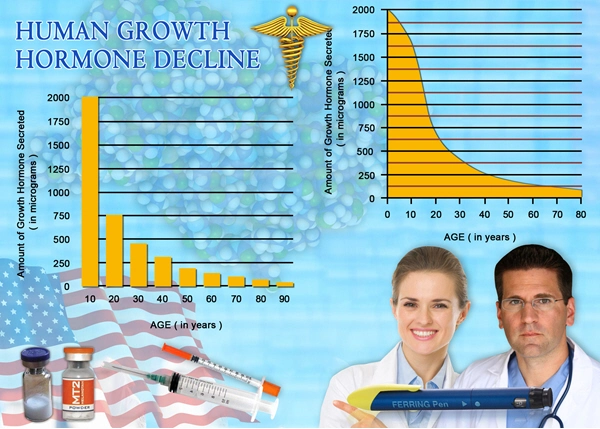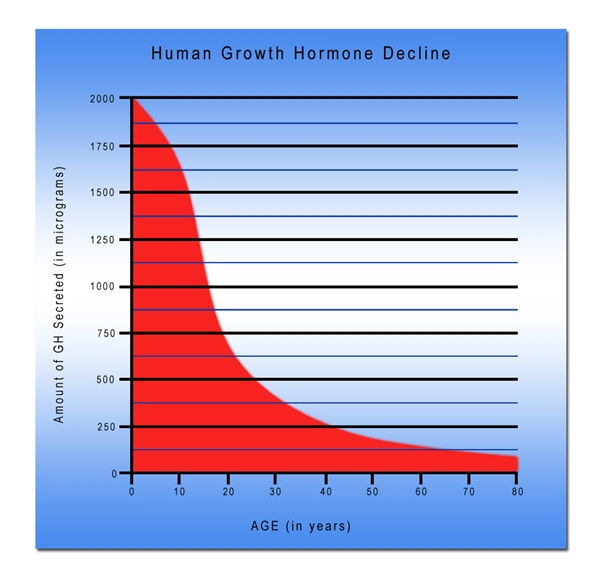Introduction to Men's Health and Obesity
Men's health is a critical area of focus in the United States, particularly when considering the prevalence of obesity and its associated risks. Obesity, defined as a body mass index (BMI) of 30 or higher, is a significant public health concern that affects millions of American men. This condition not only impacts physical appearance but also has profound implications for cardiovascular health.
The Prevalence of Obesity Among American Men
According to recent data from the Centers for Disease Control and Prevention (CDC), approximately 35% of American men are obese. This statistic is alarming, as obesity is a known risk factor for numerous health issues, including heart disease. The sedentary lifestyle and dietary habits prevalent in modern American culture contribute significantly to this epidemic.
Understanding Heart Disease
Heart disease remains the leading cause of death for men in the United States. It encompasses a range of conditions that affect the heart's structure and function, including coronary artery disease, heart failure, and arrhythmias. The link between obesity and heart disease is well-documented, with excess body fat contributing to the buildup of plaque in the arteries, increasing the risk of heart attacks and strokes.
Mechanisms Linking Obesity to Heart Disease
Several mechanisms explain how obesity contributes to heart disease. Firstly, obesity often leads to hypertension, or high blood pressure, which strains the heart and blood vessels. Secondly, it can cause dyslipidemia, characterized by high levels of harmful LDL cholesterol and low levels of protective HDL cholesterol. Additionally, obesity is associated with insulin resistance and type 2 diabetes, both of which exacerbate cardiovascular risk.
The Role of Inflammation
Chronic inflammation is another critical factor in the obesity-heart disease nexus. Adipose tissue, particularly visceral fat, produces inflammatory cytokines that can damage blood vessels and promote atherosclerosis. This systemic inflammation not only increases the risk of heart disease but also complicates its management.
Lifestyle Factors and Behavioral Interventions
Addressing obesity and reducing the risk of heart disease in American men requires a multifaceted approach. Lifestyle modifications, such as adopting a balanced diet rich in fruits, vegetables, and whole grains, and engaging in regular physical activity, are essential. The American Heart Association recommends at least 150 minutes of moderate-intensity aerobic activity or 75 minutes of vigorous activity per week for adults.
The Importance of Regular Health Screenings
Regular health screenings are crucial for early detection and management of both obesity and heart disease. American men should undergo routine check-ups that include measurements of blood pressure, cholesterol levels, and blood sugar. These screenings can help identify risk factors early, allowing for timely interventions.
Pharmacological and Surgical Options
For some men, lifestyle changes alone may not be sufficient to manage obesity and its cardiovascular consequences. In such cases, pharmacological interventions, such as weight-loss medications, may be considered. Bariatric surgery is another option for individuals with severe obesity, offering significant weight loss and improvements in cardiovascular health.
The Psychological Aspect of Obesity
It is also important to address the psychological aspects of obesity. Many men struggle with body image issues and may experience depression or anxiety related to their weight. Mental health support, including counseling and therapy, can be beneficial in managing these challenges and fostering a positive approach to weight loss and overall health.
Conclusion: A Call to Action for American Men
The link between obesity and heart disease in American men is undeniable and requires urgent attention. By understanding the mechanisms behind this connection and taking proactive steps towards healthier lifestyles, men can significantly reduce their risk of cardiovascular disease. It is imperative for American men to prioritize their health, seek regular medical advice, and embrace a holistic approach to wellness. Through collective action and individual commitment, the tide of obesity and heart disease can be turned, leading to longer, healthier lives for men across the nation.

- Understanding and Treating Erectile Dysfunction: A Comprehensive Guide for American Men [Last Updated On: March 2nd, 2025] [Originally Added On: March 2nd, 2025]
- Optimizing Men's Health: Strategic Use of Supplements for American Males [Last Updated On: March 17th, 2025] [Originally Added On: March 17th, 2025]
- Top Modern Fitness Trends Transforming Men's Health in America [Last Updated On: March 18th, 2025] [Originally Added On: March 18th, 2025]
- Meditation's Impact on Men's Mental Health: Stress Relief, Resilience, and Well-being [Last Updated On: March 18th, 2025] [Originally Added On: March 18th, 2025]
- Osteoporosis in Men: Prevention and Management Strategies for Bone Health [Last Updated On: March 18th, 2025] [Originally Added On: March 18th, 2025]
- Stress and Heart Health: Impacts and Management Strategies for American Men [Last Updated On: March 18th, 2025] [Originally Added On: March 18th, 2025]
- Addressing Mental Health Stigma in American Men: Challenges and Strategies for Change [Last Updated On: March 19th, 2025] [Originally Added On: March 19th, 2025]
- Physical Activity's Role in Cancer Prevention for American Men: Strategies and Benefits [Last Updated On: March 19th, 2025] [Originally Added On: March 19th, 2025]
- Hydration's Vital Role in Men's Health: Benefits and Practical Tips [Last Updated On: March 19th, 2025] [Originally Added On: March 19th, 2025]
- Gut Health's Role in American Males' Wellness: Microbiome, Mental, and Cardiovascular Health [Last Updated On: March 20th, 2025] [Originally Added On: March 20th, 2025]
- Managing Allergies in American Men: Triggers, Strategies, and Workplace Solutions [Last Updated On: March 21st, 2025] [Originally Added On: March 21st, 2025]
- Gout in American Men: Causes, Symptoms, and Management Strategies [Last Updated On: March 21st, 2025] [Originally Added On: March 21st, 2025]
- Work-Life Balance Impact on American Men's Health: Strategies for Improvement [Last Updated On: March 21st, 2025] [Originally Added On: March 21st, 2025]
- Sleep Apnea in American Men: Symptoms, Risks, and Management Strategies [Last Updated On: March 21st, 2025] [Originally Added On: March 21st, 2025]
- Understanding and Overcoming Male Infertility: Causes, Diagnosis, and Treatment Options [Last Updated On: March 21st, 2025] [Originally Added On: March 21st, 2025]
- Mental Health Days: Essential for American Men's Well-being and Productivity [Last Updated On: March 22nd, 2025] [Originally Added On: March 22nd, 2025]
- Asthma in Men: Understanding Risks, Symptoms, and Tailored Management Strategies [Last Updated On: March 22nd, 2025] [Originally Added On: March 22nd, 2025]
- Dental Health's Crucial Role in Men's Overall Wellness and Life Quality [Last Updated On: March 22nd, 2025] [Originally Added On: March 22nd, 2025]
- Alcohol's Impact on Liver Health in American Males: Prevention and Management Strategies [Last Updated On: March 23rd, 2025] [Originally Added On: March 23rd, 2025]
- Dietary Strategies for Enhancing Prostate Health in American Men [Last Updated On: March 23rd, 2025] [Originally Added On: March 23rd, 2025]
- High Cholesterol in American Men: Risks, Management, and Prevention Strategies [Last Updated On: March 23rd, 2025] [Originally Added On: March 23rd, 2025]
- Swimming: Enhancing Men's Health from Heart to Mind [Last Updated On: March 23rd, 2025] [Originally Added On: March 23rd, 2025]
- Caffeine's Impact on American Men's Health: Benefits and Risks [Last Updated On: March 24th, 2025] [Originally Added On: March 24th, 2025]
- Strength Training: Enhancing Health, Mental Well-being, and Longevity for American Men [Last Updated On: March 24th, 2025] [Originally Added On: March 24th, 2025]
- Exercise Benefits and Strategies for Men Managing Diabetes [Last Updated On: March 24th, 2025] [Originally Added On: March 24th, 2025]
- Effective Strategies for American Men to Quit Smoking and Improve Health [Last Updated On: March 24th, 2025] [Originally Added On: March 24th, 2025]
- Obesity and Cancer Risks in American Men: Understanding and Mitigating the Link [Last Updated On: March 24th, 2025] [Originally Added On: March 24th, 2025]
- Dietary Fiber: Essential Health Benefits for American Men [Last Updated On: March 24th, 2025] [Originally Added On: March 24th, 2025]
- Kidney Stones in American Men: Causes, Symptoms, and Management Strategies [Last Updated On: March 25th, 2025] [Originally Added On: March 25th, 2025]
- Hemorrhoids in American Men: Causes, Symptoms, Management, and Prevention Strategies [Last Updated On: March 25th, 2025] [Originally Added On: March 25th, 2025]
- Proactive Health Strategies for American Men: Screenings, Lifestyle, and Mental Well-being [Last Updated On: March 25th, 2025] [Originally Added On: March 25th, 2025]
- Managing Anxiety in American Men: Tools and Techniques for a Healthier Life [Last Updated On: March 25th, 2025] [Originally Added On: March 25th, 2025]
- Social Connections: Vital for American Men's Mental Health and Well-being [Last Updated On: March 25th, 2025] [Originally Added On: March 25th, 2025]
- Sleep's Vital Role in Weight Management for American Men [Last Updated On: March 25th, 2025] [Originally Added On: March 25th, 2025]
- Seasonal Affective Disorder in American Men: Symptoms, Impact, and Management Strategies [Last Updated On: March 25th, 2025] [Originally Added On: March 25th, 2025]
- Stroke Risks and Prevention Strategies for American Men [Last Updated On: March 26th, 2025] [Originally Added On: March 26th, 2025]
- Annual Physicals: Essential for Men's Health and Disease Prevention in the U.S. [Last Updated On: March 26th, 2025] [Originally Added On: March 26th, 2025]
- Hiking: Enhancing Men's Physical, Mental, and Social Health in America [Last Updated On: March 26th, 2025] [Originally Added On: March 26th, 2025]
- Depression in Men: Symptoms, Treatment Options, and the Importance of Seeking Help [Last Updated On: March 27th, 2025] [Originally Added On: March 27th, 2025]
- Tai Chi Benefits for American Men: Health, Strength, and Mental Clarity [Last Updated On: March 27th, 2025] [Originally Added On: March 27th, 2025]
- Workplace Mental Health Initiatives: Enhancing American Men's Well-being and Productivity [Last Updated On: March 27th, 2025] [Originally Added On: March 27th, 2025]
- Plant-Based Diets: Health Benefits for American Men's Heart, Weight, and Mental Well-being [Last Updated On: March 27th, 2025] [Originally Added On: March 27th, 2025]
- Pilates Benefits for American Men: Core Strength, Flexibility, and Mental Health [Last Updated On: March 27th, 2025] [Originally Added On: March 27th, 2025]
- Arthritis in American Men: Understanding, Preventing, and Managing the Condition Effectively [Last Updated On: March 27th, 2025] [Originally Added On: March 27th, 2025]
- Stress and Digestive Health in American Males: Understanding and Managing the Gut-Brain Axis [Last Updated On: March 27th, 2025] [Originally Added On: March 27th, 2025]
- Breaking Stigma: The Crucial Role of Mental Health Screening for American Men [Last Updated On: March 28th, 2025] [Originally Added On: March 28th, 2025]
- Varicose Veins in Men: Causes, Symptoms, and Treatment Options [Last Updated On: March 28th, 2025] [Originally Added On: March 28th, 2025]
- Insomnia in American Men: Impacts, Strategies, and Solutions for Better Sleep [Last Updated On: March 28th, 2025] [Originally Added On: March 28th, 2025]
- Cycling Benefits for American Men: Enhancing Health and Well-being [Last Updated On: March 28th, 2025] [Originally Added On: March 28th, 2025]
- Diet and Heart Disease in American Men: Key Factors and Healthy Eating Strategies [Last Updated On: March 29th, 2025] [Originally Added On: March 29th, 2025]
- Routine Eye Exams: Essential for Men's Vision and Overall Health [Last Updated On: March 30th, 2025] [Originally Added On: March 30th, 2025]
- Environmental Pollution's Impact on Men's Health: Risks and Mitigation Strategies [Last Updated On: March 30th, 2025] [Originally Added On: March 30th, 2025]
- Antioxidants: Boosting Health and Preventing Disease in American Men [Last Updated On: April 1st, 2025] [Originally Added On: April 1st, 2025]
- Breaking the Stigma: Enhancing Men's Mental Health Through Education and Awareness [Last Updated On: April 2nd, 2025] [Originally Added On: April 2nd, 2025]
- Rowing's Rise: Health Benefits for American Men's Fitness and Well-being [Last Updated On: April 3rd, 2025] [Originally Added On: April 3rd, 2025]
- Migraines in Men: Symptoms, Triggers, and Effective Management Strategies [Last Updated On: April 5th, 2025] [Originally Added On: April 5th, 2025]
- Back Pain in Men: Causes, Prevention, and Management Strategies [Last Updated On: April 5th, 2025] [Originally Added On: April 5th, 2025]
- Community Impact on Men's Health: Social Connections, Programs, and Preventive Care in America [Last Updated On: April 6th, 2025] [Originally Added On: April 6th, 2025]
- Martial Arts: Enhancing Men's Health and Lifestyle in the U.S. [Last Updated On: April 6th, 2025] [Originally Added On: April 6th, 2025]
- Skin Cancer in American Men: Risks, Prevention, and Early Detection Strategies [Last Updated On: April 6th, 2025] [Originally Added On: April 6th, 2025]
- Alcohol and Mental Health: A Critical Analysis Among American Males [Last Updated On: April 8th, 2025] [Originally Added On: April 8th, 2025]
- Technology's Dual Impact on U.S. Men's Health: Challenges and Solutions [Last Updated On: April 9th, 2025] [Originally Added On: April 9th, 2025]
- Essential Vitamins for Men's Health: D, B12, C, E, K Benefits and Sources [Last Updated On: April 10th, 2025] [Originally Added On: April 10th, 2025]
- Obesity and Diabetes: A Critical Health Concern for American Men [Last Updated On: April 11th, 2025] [Originally Added On: April 11th, 2025]
- Hearing Health for American Men: Prevention, Impact, and Technological Solutions [Last Updated On: April 11th, 2025] [Originally Added On: April 11th, 2025]
- Running's Health Benefits for American Men: Cardiovascular, Weight, Mental, Bone, Diabetes [Last Updated On: April 12th, 2025] [Originally Added On: April 12th, 2025]
- Managing Panic Attacks in American Men: Symptoms, Strategies, and Support [Last Updated On: April 13th, 2025] [Originally Added On: April 13th, 2025]
- CrossFit: Enhancing American Men's Health Through Fitness and Community [Last Updated On: April 14th, 2025] [Originally Added On: April 14th, 2025]
- Managing IBS in American Men: Symptoms, Diet, Lifestyle, and Mental Health Strategies [Last Updated On: April 15th, 2025] [Originally Added On: April 15th, 2025]
- Transforming Men's Mental Health: The Power of Awareness Campaigns in America [Last Updated On: April 16th, 2025] [Originally Added On: April 16th, 2025]
- Joint Pain in American Men: Causes, Prevention, and Management Strategies [Last Updated On: April 17th, 2025] [Originally Added On: April 17th, 2025]
- Lung Cancer in American Men: Risks, Symptoms, and Prevention Strategies [Last Updated On: April 18th, 2025] [Originally Added On: April 18th, 2025]
- Basketball's Impact on Men's Health: Physical, Mental, and Social Benefits [Last Updated On: April 19th, 2025] [Originally Added On: April 19th, 2025]
- Soccer: Enhancing American Men's Health from Heart to Mind [Last Updated On: April 19th, 2025] [Originally Added On: April 19th, 2025]
- Diet and Mental Health: Key Nutrients and Strategies for American Men [Last Updated On: April 19th, 2025] [Originally Added On: April 19th, 2025]
- Family Support: Enhancing Health and Wellbeing of American Men [Last Updated On: April 19th, 2025] [Originally Added On: April 19th, 2025]
- Mental Health First Aid: A Lifeline for American Men's Well-being [Last Updated On: April 20th, 2025] [Originally Added On: April 20th, 2025]



List of USA state clinics - click a flag below for blood testing clinics.
Word Count: 630



















































